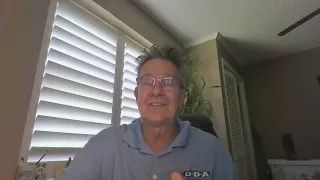Only 16% of women are confident about their retirement prospects
Roughly 16% of women workers are “very confident” that their retirement prospects will lead them to have a satisfactory lifestyle, illustrating that women remain at greater risk than men for achieving a sustainable retirement. This is according to a new survey-based report from the Transamerica Center for Retirement Studies.
“Women have made great strides in educational attainment and access to career opportunities in recent decades,” Catherine Collinson, president and CEO of the Transamerica Institute, said in a statement. “Yet, despite this progress, women are still at greater risk than men of not achieving a financially secure retirement.”
Longstanding challenges including a pay gap between men and women, as well as more time needed away from the workforce to adequately parent or provide care for a loved one. These still serve as hindrances for women’s lifetime earnings and retirement savings, Collinson added.
They can also impact “government and employer benefits,” challenges compounded by the fact that “women tend to live longer than men, so they have an even greater need to save for older age,” she added.
The top fear among women in or approaching retirement, according to 44% of all respondents, is that they will outlive their savings and investments. This was only narrowly edged out by concerns related to Social Security’s solvency and ability to pay full benefits (43%), followed by declining health that would require long-term care (41%), an inability to meet the financial needs of their families (39%), and cognitive decline (37%).
Nearly 40% of respondents said they are currently serving or have previously served as caregivers during their working years. More than 80% said they needed to make “adjustments” to their work due to caregiving responsibilities.
Among primary financial priorities, saving for retirement is at the top of the list with 52% of respondents saying that it is the leading priority. But only 16% of women said they are “very confident” they’ll be able to retire with a comfortable lifestyle.
Roughly one in four women (26%) said they expect Social Security to serve as their primary form of income in retirement, but 77% are concerned that it will not be there for them when they’re ready to retire. Additionally, 78% of respondents said they are saving for retirement either at work and/or outside of work.
One of the ways to address this lack of security felt by women is for lawmakers to address their concerns, Collinson added.
“Policymakers can pave the way by addressing structural barriers and implementing reforms, employers can enhance their business practices and benefit offerings to be more inclusive of women’s needs, women can take charge by further engaging in financial planning, and men can lean in and do more as advocates and allies,” she said.
Have A Question?
Use the form below and we will give your our expert answers!
Reverse Mortgage Ask A Question
Start Your Loan
with DDA todayYour local Mortgage Broker
Mortgage Broker Largo See our Reviews
Looking for more details? Listen to our extended podcast!
Check out our other helpful videos to learn more about credit and residential mortgages.





